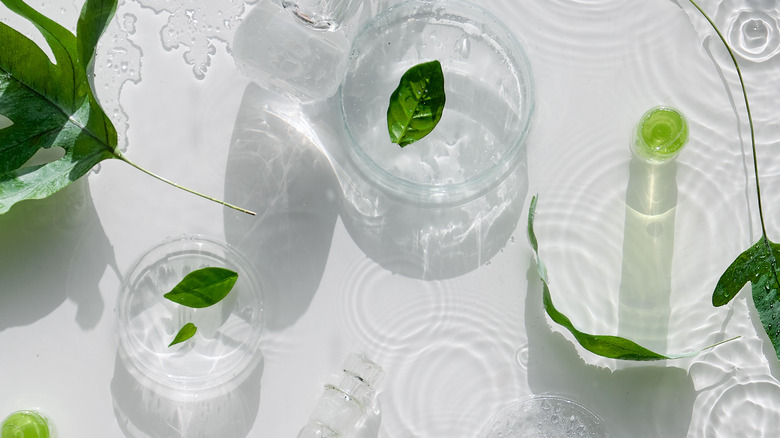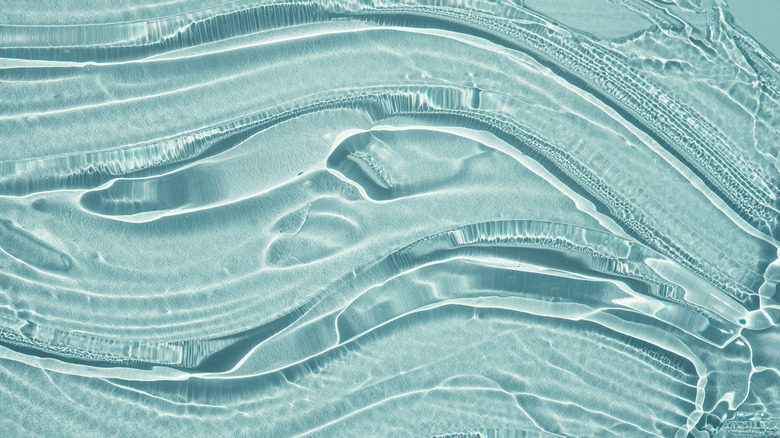These Are The Ingredients You Need For Dewy Skin All Year Long
Now that soft, dewy skin is considered a must for beauty mavens all over the world, many are obsessed with finding the best ingredients that increase their skin's shine. With so many products that tout these benefits, it can be difficult to sift through the marketing jargon to find what's the best for your face.
When it comes to trendy skincare ingredients, hyaluronic acid may be number one on the list. Known as a powerful hydrating agent, hyaluronic acid can hold up to 1,000 times its weight in water, Mindbodygreen notes. Essentially, hyaluronic acid's ability to connect water and collagen together makes way for the dewey, plump appearance of your skin. Board-certified dermatologist Tsippora Shainhouse, tells Allure, "Hyaluronic acid is a sugar molecule that occurs naturally in the skin, [and] it helps to bind water to collagen, trapping it in the skin, so that skin can appear plumper, dewier, and more hydrated."
Holistic dermatologist, Cybele Fishman, M.D., explains to Mindbodygreen, "It draws water into the stratum corneum, the top layer of the skin. It is a humectant, so it gives an immediate improvement in the way the skin looks — less ashy, dry, dull."
Another hydrating acid, polyglutamic acid will leave your cells looking rejuvenated in no time. "Polyglutamic acid is a powerful humectant that can hold four times more water than hyaluronic acid," Hadley King, MD, explains.
Try a product with ceramides
When it comes to having glowing skin, there's no question that you have to protect it. Even if you have tons of hydrating ingredients in your repertoire, your skin can't maintain its shine without ceramides. These naturally occurring glue-like molecules keep your cells sealed together, ensuring that irritants and other inflammatory items can't break the barrier, Self explains. For some specific issues such as eczema, this ingredient may help combat breakouts and other uncomfortable conditions. Plus, Mindbodygreen notes, ceramides contain moisturizing properties themselves; they help solidify the skin barrier while providing hydration as well.
However, if you're looking for a moisturizing ingredient that's more naturally occurring, aloe vera could be your latest staple. You can dab some of the plant's liquid on your face after you cleanse for a hydrating boost. Board-certified dermatologist, Marisa Garshick, M.D., tells the outlet, "The leaf of the aloe vera plant is rich in water, particularly in the innermost layer, so it helps to hydrate the skin and lock in moisture. The sugars [it contains], also known as mucopolysaccharides, [also] help to retain moisture in the skin."
Add a few of these ingredients to your skincare routine throughout the year and watch as your skin remains the same hydrated palette that you love.

